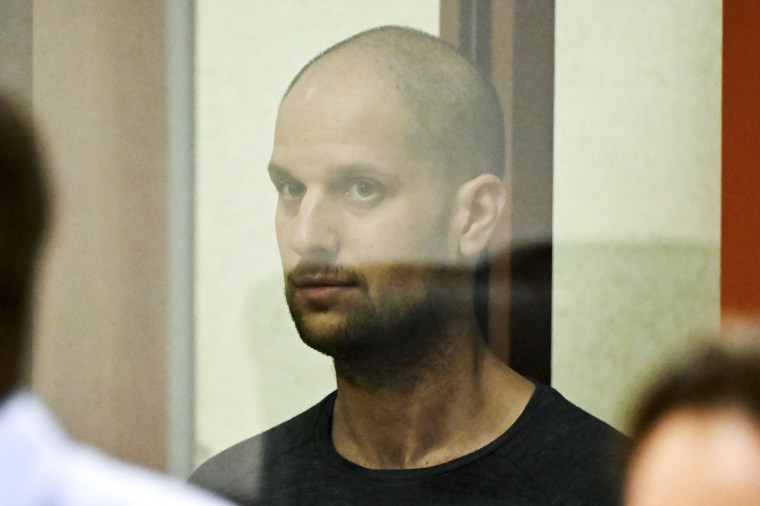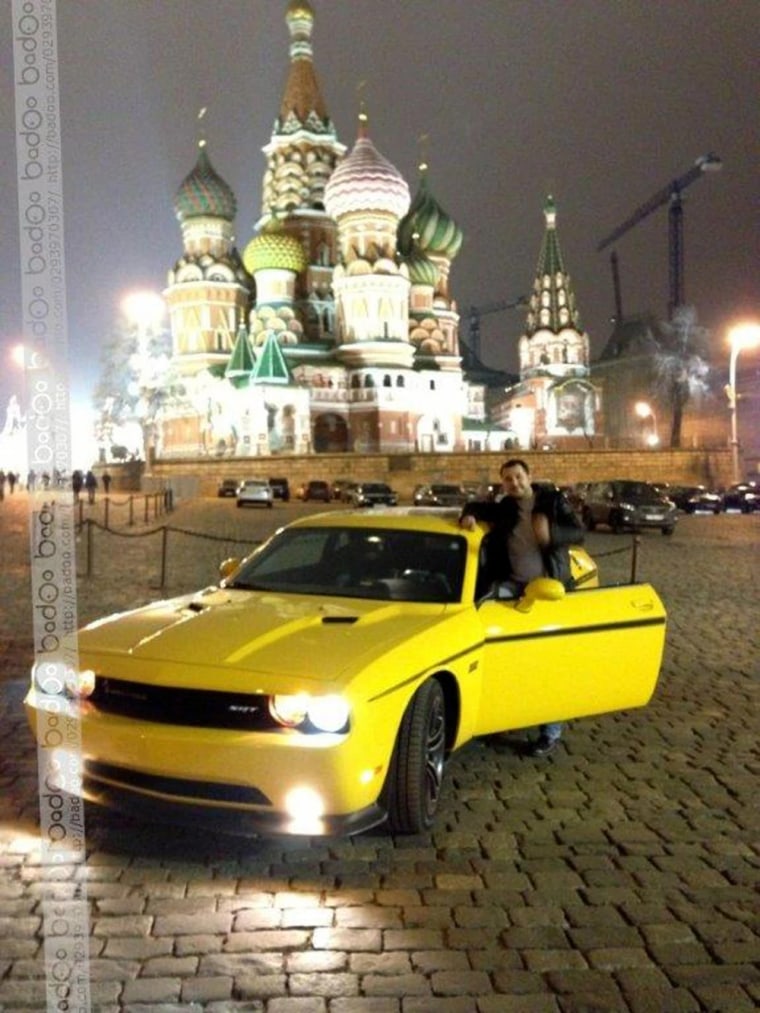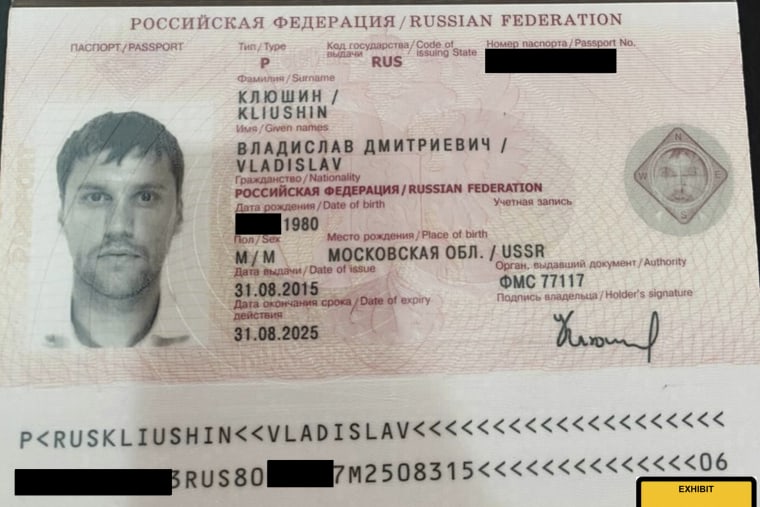
One is a hitman who gunned down a man in broad daylight. Another posed as a Brazilian university lecturer. Some scammed millions of dollars in sophisticated cybercrimes. They're all Russian prisoners who are being freed in one of the biggest prisoner exchanges since the Cold War.
Their release came after months of negotiations by the Biden administration officials with their Russian counterparts. Three Americans are being freed as part of the deal: Wall Street Journal reporter Evan Gershkovich, former Marine Paul Whelan and Russian American reporter Alsu Kurmasheva.
At a time when relations between Washington and Moscow are frosty over the war in Ukraine, the U.S. has repeatedly accused the Russians of arresting American citizens on flimsy charges to use them as bargaining chips in negotiations over the release of its own citizens being held on far more serious charges.

Gershkovich, who was convicted of espionage and sentenced to 16 years in a maximum security prison last month, was no exception. The U.S. government — and his employer — said he was the victim of a sham trial.
NBC News looks at the Russian prisoners released in the swap.
Perhaps the most important to Russian President Vladimir Putin, Krasikov is a Russian hitman who was jailed for life in Germany for the murder of Zelimkhan Khangoshvili, a 40-year-old former Chechen militant, in a Berlin park in 2019.
Putin mentioned Krasikov when asked if he would release Gershkovich in a February interview with former Fox News host Tucker Carlson. Although he did not say Krasikov’s name directly, Putin described him as a “patriot.”
He added that Krasikov had “liquidated” a Chechen who mercilessly killed Russian prisoners of war in the Caucasus region. “He laid out our captured soldiers on the road, and then drove his car over their heads,” Putin told Carlson.
Germany alleged that Krasikov was acting on the Kremlin’s orders when he rode through Berlin’s central Tiergarten Park on a bicycle and gunned down Khangoshvili in broad daylight.
Moscow has denied his direct involvement in the killing, which caused a major diplomatic dispute between Russia and Germany.
Krasikov also denied he was the killer and claimed he had been misidentified by German investigators.
After jailed opposition leader Alexei Navalny died in prison in February, his allies alleged, without providing evidence, that an exchange deal was in the works that would have involved Krasikov.
The 27 years he was handed in 2017 was the longest sentence ever for cyber fraud in U.S. history.
After he was extradited from the Maldives, Roman Seleznev was accused at trial of installing malicious software into retail point-of-sale systems and causing 3,700 financial institutions more than $169 million in losses.

That same year, Seleznev, the son of Russian lawmaker Valery Seleznev, was sentenced to an additional 14 years on separate cyber fraud charges in the states of Georgia and Nevada.
His lawyer at the time suggested the harsh verdict was a political prosecution and Russia has repeatedly complained about the “unacceptable” conditions he has been kept in.
Shortly after his first trial, Russia’s embassy in Washington also claimed that Seleznev had been “kidnapped” when he was initially detained in the Maldives.
An alleged Russian intelligence operative, Konoshchenok was extradited to the United States last summer after he was arrested in Estonia on charges of illegally procuring American military hardware for the war in Ukraine and breaching international sanctions.
He was described upon his extradition as a Russian citizen “with alleged ties” to the country’s Federal Security Service, or FSB, by the U.S. Attorney’s Office in the Eastern District of New York.
Konoshchenok, 48, was “a critical participant in a scheme to provide sensitive, American-made electronics and ammunition in furtherance of Russia’s war efforts and weapons development,” the office said in a statement.
In a separate statement, the Department of Justice said he faced a maximum penalty of 30 years in prison.
Russian state media has reported that Konoshchenok denied the charges against him.
Quoting the Russian embassy in the Estonian capital, Tallinn, in 2022, the Ria state news agency said the idea that Konoshchenok was an FSB officer was “nothing more than a fantasy.”
Described as “a sophisticated hacker who engineered a global get-rich-quick scheme that defrauded unsuspecting American businesses” by district attorneys in Massachusetts, Klyushin, 42, was sentenced in September to nine years in a U.S. prison for his involvement in a $93-million insider trading scheme.
The Russian businessman with ties to the Kremlin used confidential corporate information stolen from U.S. computer networks, a court heard before he was convicted of securities fraud, wire fraud, gaining unauthorized access to computers and conspiracy to commit those crimes.

Klyushin, who was extradited to the U.S. from Switzerland, is also the owner of a Moscow-based IT company called M-13, which counted the Russian government among its clients, the Attorney’s Office for the District of Massachusetts said in a statement.
Shortly after he was sentenced, state news agency Ria quoted the Russian foreign ministry as saying that Klyushin’s sentence was politically motivated and that he denied all the charges.
The Russian couple Artem and Anna Dultseva were sentenced in a closed trial at a court in Slovenia’s capital, Ljubljana, on Wednesday after pleading guilty to spying charges.
The pair, who posed as Argentinian citizens, Ludwig Gisch and Maria Rosa Mayer Muños, and settled in Slovenia in 2017, have two children who attended an international school in Ljubljana, local media reported.
The couple used Ljubljana as their base to travel to neighboring NATO and European Union member states, relay orders from Moscow and bring cash to other Russian sleeper agents, The Associated Press reported.
Rubtsov was released from custody in Poland.
The Association of Foreign Press Correspondents in the USA said that Rubtsov had dual Spanish and Russian citizenship and also went under the name of Pablo González.
“The Polish secret services claim he used his journalistic role as a cover, but there is no evidence to support this claim,” the AFPC wrote on its website, where it also quoted his lawyer as saying that González denied the charges.
He presented himself as a Brazilian national and worked as a lecturer at the Arctic University of Norway in the northern city of Tromsoe until he was arrested on suspicion of spying for Russia in October 2022.
Norwegian prosecutors later said he was really Mikhail Mikushin from Russia.
Yuliya Talmazan is a reporter for NBC News Digital, based in London.